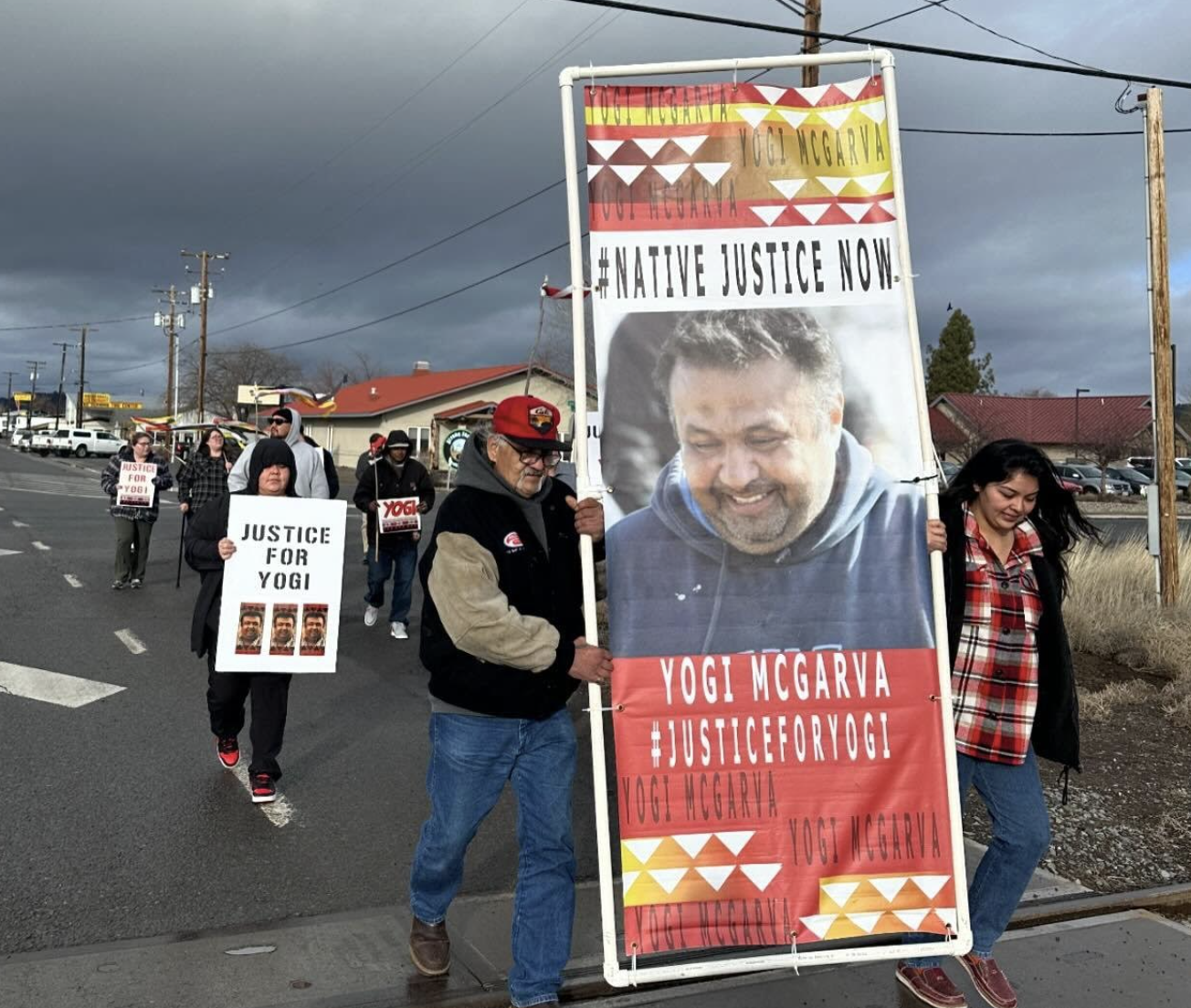
- Details
- By Kaili Berg
MMIP. Amidst the launch of MMIP Awareness week, a notable victory in Northern California sees justice served for Milton “Yogi” McGarva, a Pit River tribal citizen.
California Attorney General Rob Bonta recently announced the sentencing of Jarrett Bleu Rucker to 26 years to life in prison for McGarva's murder, marking a crucial development in the ongoing fight against the Missing Murdered Indigenous People (MMIP) crisis.
The tragic events unfolded on March 9, 2020, when Modoc County Sheriff's Deputies responded to a stabbing report at a residence on County Road 65 in Likely, California. Upon arrival, they discovered McGarva, fatally wounded, alongside Rucker, who sustained injuries requiring urgent medical attention.
The prosecution, led by the California Department of Justice’s Criminal Division, concluded with a jury finding Rucker guilty of first-degree murder. This verdict, reached on February 27, 2024, marked the end of a legal saga that began with McGarva's tragic death.
“If it wasn’t for the Attorney General's Office, I don’t think we would have had this moment," Morning Star Gali, executive director of Indigenous Justice said in a press release. "We are extremely grateful for all of the efforts involved to bring justice for Yogi and his family."
Since becoming Attorney General, Bonta has taken action to address the MMIP crisis in California. He's organized statewide MMIP events called "Missing in California Indian Country," providing crucial support for tribal communities. These events allow loved ones to report missing individuals, get updates on cases, and provide DNA samples for identification.
Bonta also created the Native American Marsy’s Law Information Card to inform tribal crime victims of their rights. Additionally, he supports Assembly Bill 2695 (AB 2695) by Assemblymember James C. Ramos (D-Highland), which requires law enforcement to report crime data from Indian lands to the DOJ, aiding in MMIP crisis resolution.
“Today, I am thinking of the family of Milton ‘Yogi’ McGarva. I can’t begin to imagine what they have been through these past few years. My team fought hard to secure justice for them, and now, Yogi’s killer will be behind bars for a substantial amount of time,” Attorney General Bonta said. “At the California Department of Justice, we will continue to hold accountable those who terrorize any of our neighborhoods, including our tribal communities that too often are overlooked.”
More Stories Like This
Navajo Council Committees Tackle Grazing Enforcement, Code RevisionsU.S. Must Fulfill Obligations by Protecting Programs
50 Years of Self-Determination: How a Landmark Act Empowered Tribal Sovereignty and Transformed Federal-Tribal Relations
Trump Veto Stalls Effort to Expand Miccosukee Tribal Lands
Oneida Nation Responds to Discovery Its Subsidiary Was Awarded $6 Million ICE Contracts
Help us defend tribal sovereignty.
At Native News Online, our mission is rooted in telling the stories that strengthen sovereignty and uplift Indigenous voices — not just at year’s end, but every single day.
Because of your generosity last year, we were able to keep our reporters on the ground in tribal communities, at national gatherings and in the halls of Congress — covering the issues that matter most to Indian Country: sovereignty, culture, education, health and economic opportunity.
That support sustained us through a tough year in 2025. Now, as we look to the year ahead, we need your help right now to ensure warrior journalism remains strong — reporting that defends tribal sovereignty, amplifies Native truth, and holds power accountable.
 The stakes couldn't be higher. Your support keeps Native voices heard, Native stories told and Native sovereignty defended.
The stakes couldn't be higher. Your support keeps Native voices heard, Native stories told and Native sovereignty defended.
Stand with Warrior Journalism today.
Levi Rickert (Potawatomi), Editor & Publisher


